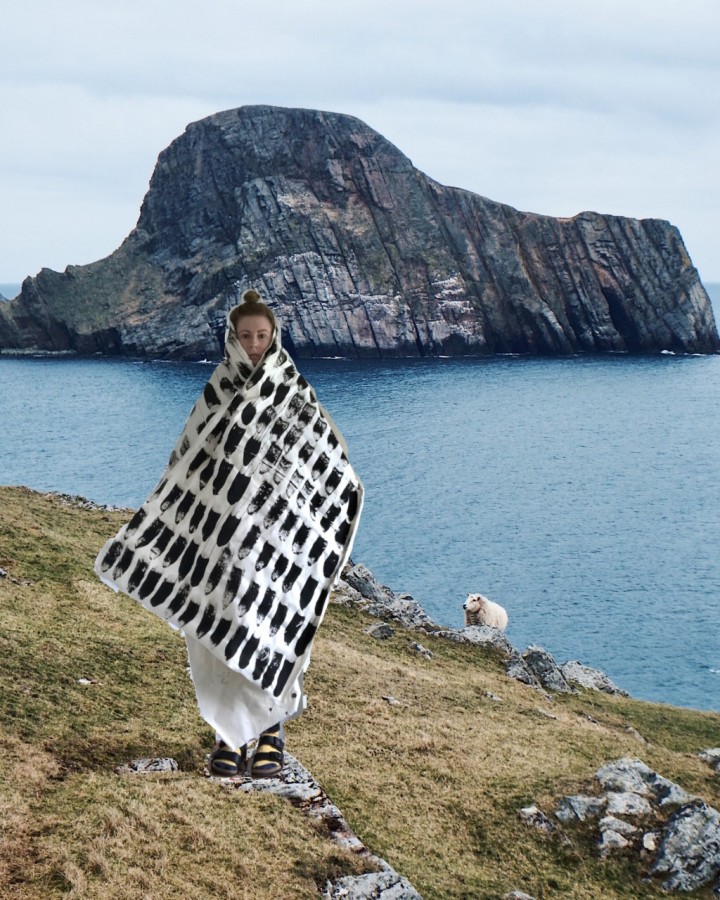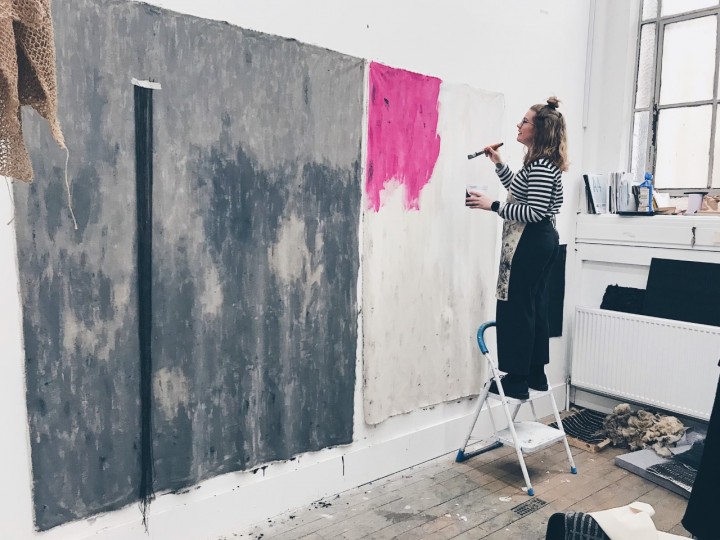Scottish Art News
Latest news
Magazine
News & Press
Publications
Scottish Art Unlocked: Vivian Ross-Smith
By Vivian Ross-Smith, 24.07.2020

I am an island artist. At times, this can make it difficult to be ‘seen’ in a contemporary art world, with its gallery openings and mingling over free drinks. I rely on the internet as a main disseminator for my practice, it is a space I use daily to show my work and feel connected.
In September 2019, I journeyed toward Glasgow School of Art to begin a master’s degree, an undertaking I had been working toward since 2013 when I graduated from Gray’s School of Art. I frequently experience, and actively push against, the city-centric nature of the artworld, and the idea that if isn’t happening in Glasgow, London or some other metropolis then it isn’t worth happening at all.
Being in Glasgow allowed me to be physically present to talk about and remind the artworld of the practice’s happening in places perceived as ‘remote’. I was asking galleries and curators to look further than their front doorstep when representing artists and better support practices happening outwith urban environments. I firmly told the folk who assumed I would remain in Glasgow after graduation that no, I would be returning to Shetland to practice what I preach and encourage others to do the same.
When GSA closed for Covid-19, the tangible elements I was exploring quickly ceased. During this time, I’ve watched as exhibitions shifted online, talks were streamed, and art organisations have, without hesitation, made their year of programming available for the entire internet-using population of the world. We are considering accessibility more than ever. My hope for the future, is that the art world keeps this up.
 Vivian Ross-Smith. Courtesy the Artist.
Vivian Ross-Smith. Courtesy the Artist.
To those who run and work in art spaces: this is a call to action and a plea to ensure accessibility isn’t reliant on an individual being present in your space. I need the internet to access art, and during lockdown I have been ‘present’ from my Shetland studio more than ever.
Since March, I have been working as a member of the Pause or Pay UK campaign, to give the student voice a platform and request art schools better support the student-body as they make huge sacrifices to their education as a result of Covid-19. I am frustrated that I cannot have a physical degree show, I am infuriated that I have missed so much of a postgrad, which I am still paying full fees for. Online art school is not art school.
The wider art-world, however, could and should be using the internet as a tool for dissemination at every opportunity. Covid-19 has made us all island artists. Yes, it has stopped us from being physically present in these spaces and shifted us into a virtual world but we have not let that stifle our commitment to art, instead we have become resourceful and used it to our advantage.
As we ease back into the physical world, let’s not simply return to business as usual. We have an opportunity to continue practicing the benefits from this time and continue centering accessibility. Let’s make a commitment to act on what we have learned and not assume that the old ‘normal’ is better.
Discover more about Vivian Ross-Smith on her website.
This article is part of a series from the Fleming Collection in discussion with the Scottish art scene to find out how the Covid-19 pandemic and subsequent lockdown has impacted programmes and practices, and how it might reshape the art scene in the future. For more, read words from the Scottish Sculpture Workship, artist Hanna Tuulikki, Kate Gray on Collective and Tina Fiske on CAMPLE LINE.




